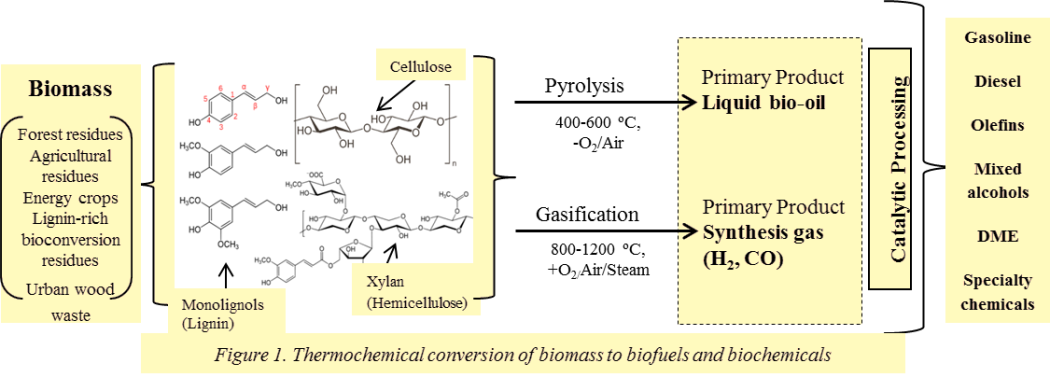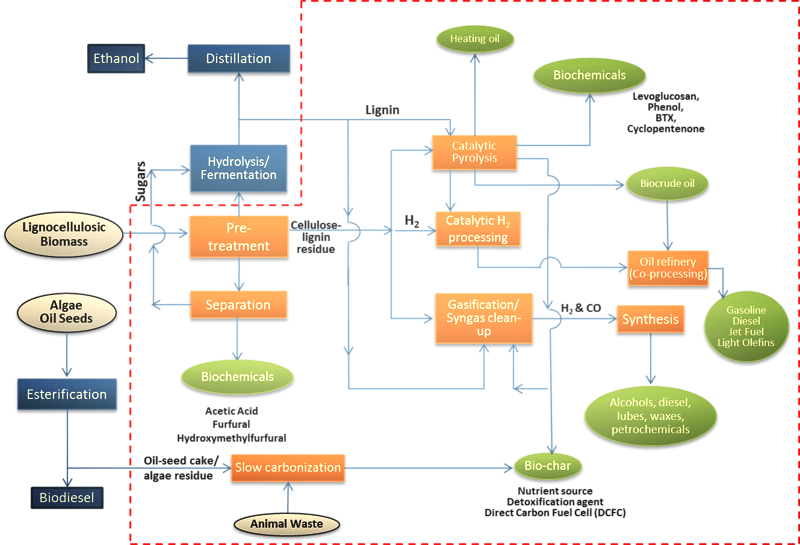
Research Focus
Concerns over climate change and the need to overcome unstable energy markets have spurred interest in the development of efficient, economic, and sustainable technologies for the production of alternative fuels, chemicals, and power. Currently, biomass is one of the major alternative sources of renewable carbon that can readily be used to partially displace petroleum derived fuels and chemicals. To date, several biochemical and thermochemical platforms are being developed to convert biomass into advanced biofuels and bioproducts. Nevertheless, commercial options for biofuels are limited to bio-ethanol from grains and sugarcane. Promising thermochemical pathways as pyrolysis and gasification are yet to be competitive.
As a Research Chemical Engineer, my research and development efforts extend to addressing the technoeconomic challenges of thermochemical conversion of all forms of lignocellulosic and carbonaceous materials and wastes into value added products with associated reduction in GHG emissions to produce marketable bio-based fuels, chemicals and materials. Deep understanding of biomass characteristics and innovations in catalytic materials as well strategic process integration are key to resolving at fundamental level, the key hurdles to thermochemical conversion of biomass.
For the past two years, my research work has been on intergrating catalytic pyrolysis and hydroprocessing technologies to produce refinery-ready intermediates, blendstock fuels, and chemicals. In this way, biofuels and chemicals can be introduced into the market gradually and economically. Click here to read more
Biomass Conversion into biobased fuel blendstock, "drop-in" fuels and chemicals







